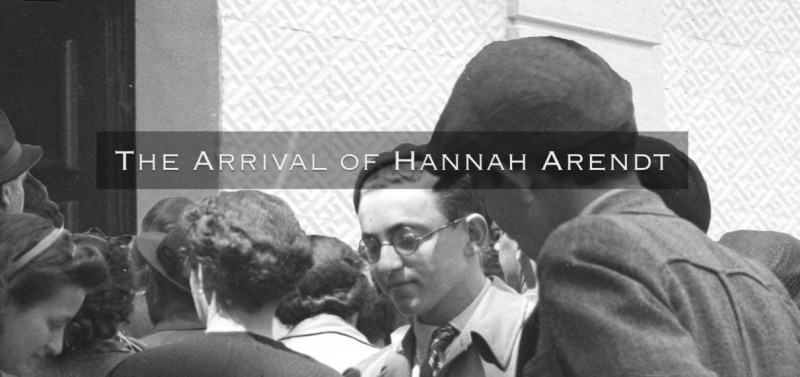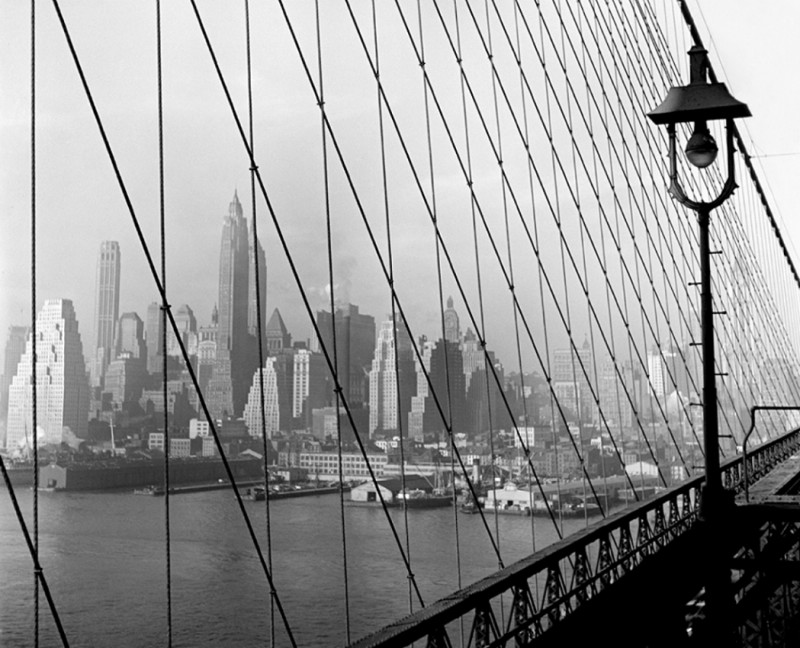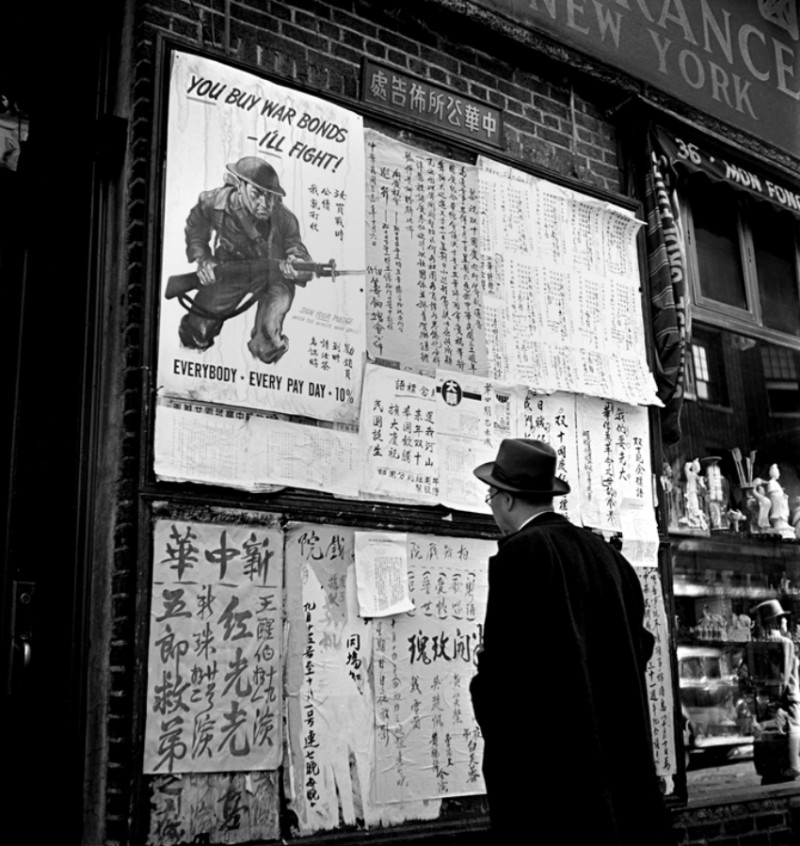
The Arrival of Hannah Arendt
This film describes the arrival of Hannah Arendt - a Jewish, German-American political theorist and publicist - in New York and her reflections on flight and helping people start over.

Als Sie ankamen in New York, was war das für Sie?
Dass es nicht Deutschland war, das war die Hauptsache. Ich war schon mal vorher in New York gewesen. Und meine Frau hat hier zwei Brüder gehabt. Und drittens, wenn Sie damals als Jude auf dem Mond gelandet wären, hätten Sie das Gefühl gehabt: es ist wunderbar. Man war froh, dass man keine Angst mehr zu haben brauchte, wenn es klingelte. Es war sehr schlimm zu wissen, dass die Eltern in Europa sind. Wo sie verschwunden sind. Meine Eltern sind in Jugoslawien gewesen. Mein Vater ist noch Ende 1940 gestorben, meine Mutter ist von den Nazis ermordet worden. Meine Schwiegereltern konnten sich nach Kuba retten. Wir hatten es hier nicht leicht, aber wir hatten es ja auch nicht sehr schwer. Ich hab halbwegs vernünftige Jobs gehabt, konnte nebenbei studieren, und ich habe meine drei Kinder aufgezogen. Ein Kind geboren in Deutschland, eins in England und eins in Amerika.
Also, das deutsche Bildungsbürgertum, das in Form von jüdischen Refugees hergekommen ist, war eine sehr eigenartige Gruppe. War eine Gruppe mit einem intellektuellen und zivilisatorischen Armamentorium. Unsere Emigration war eine Emigration von vollkommen akkulturierten und assimilierten westlichen Intellektuellen und Kaufleuten, also im westlichen aus der Mittel-und Oberschicht des Bürgertums. Wir mussten uns nicht akkulturieren an die amerikanische Gesellschaft. Wir gehörten zu derselben Gesellschaft. Bei uns war das grösste Hindernis die Sprache, das war alles. Das, was wir gelernt hatten, wie wir erzogen waren, wie wir gelebt haben, war dasselbe westliche europäisch-amerikanische Zivilisationsbild.
New York ab 1933 Die Entscheidung zur Flucht und Fluchterfahrungen Neuanfang und Zukunftsvisionen

When you arrived in New York, what was it like for you?
The fact that it wasn’t Germany was the main thing. I had been to New York before. And my wife had two brothers here. And thirdly, if you had landed on the moon as a Jew at that time, you would have felt: it is wonderful. You were glad that you no longer had to be afraid when the bell rang. It was very bad to know that the parents are in Europe. Where they disappeared. My parents have been in Yugoslavia. My father died at the end of 1940, my mother was murdered by the Nazis. My parents-in-law were able to escape to Cuba. We didn’t have it easy here, but we didn’t have it very hard either. I had halfway decent jobs, was able to study on the side, and I raised my three children. One child born in Germany, one in England and one in America.
So, the German educated middle class, which came here in the form of Jewish refugees, was a very peculiar group. It was a group with an intellectual and civilizational armamentarium. Our emigration was an emigration of fully acculturated and assimilated Western intellectuals and merchants, i.e. in the West from the middle and upper classes of the bourgeoisie. We didn’t have to acculturate to American society. We belonged to the same society. For us, the biggest obstacle was language, that was all. What we had learned, how we were educated, how we lived, was the same Western European-American civilization image.
Fred (Fritz) Grubel (in Germany formerly Grüber) was born into an East Jewish family in Leipzig in 1908. His family did not receive German citizenship until 1928. He studied in Leipzig, Frankfurt and received a doctorate in law. Until the spring of 1933 he worked as a legal trainee at a court in Leipzig, but was not admitted to the second state exam. He worked in the administration of the Jewish Community in Leipzig, his duties included organizing the emigration of German Jews. He survived two months of imprisonment in the Buchenwald concentration camp and fled with his family first to England in 1939 and then to the United States in 1940. In the following years he worked for various Jewish organizations. Since 1966 he was the director of Leo Baeck Institute in New York.
The Leo Baeck Institute is a research library and archive focused on the history of German-speaking Jews. The Institute was founded in 1955 by leading German-Jewish émigré intellectuals including Martin Buber, Max Grunewald, Hannah Arendt and Robert Weltsch, who were determined to preserve the vibrant cultural heritage of German-speaking Jewry that was nearly destroyed in the Holocaust. They named the Institute for Rabbi Leo Baeck, the last leader of Germany’s Jewish Community under the Nazi regime, and appointed him as the Institute’s first President.
Thomas Hartwig, Achim Roscher, 1986: Die verheissene Stadt: Deutsch-jüdische Emigranten in New York. Gespräche, Eindrücke und Bilder. Berlin: Das Arsenal. pp.116, 118.
Translation from German to English © Minor Kontor / We Refugees Archive.